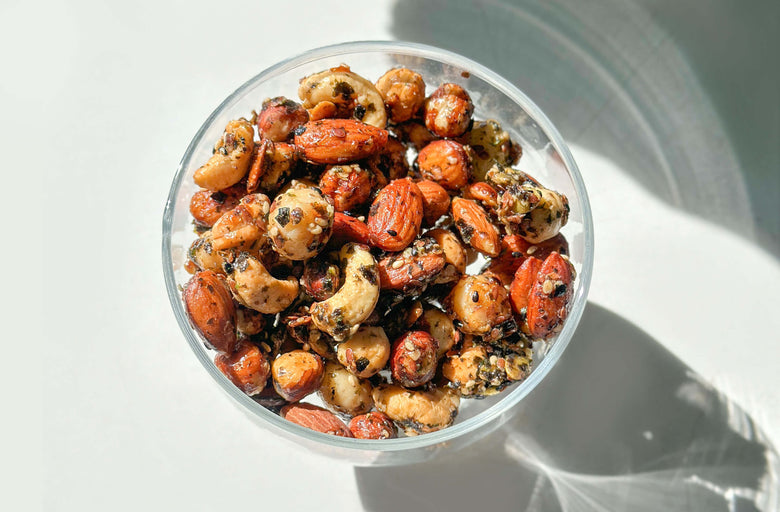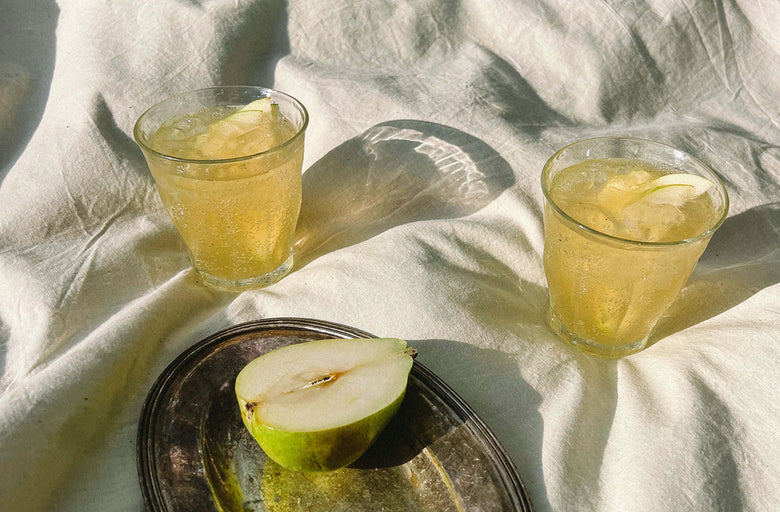Sleep – it should come so naturally, we do it with our eyes closed. Yet, 1 in 3 American adults isn’t getting enough sleep. Are you one of them? (I think I might be...) Here, we’re uncovering the truth about the science of sleep, so we can all rest a little easier.
- How much sleep do we actually need? What’s the magic number? According to the CDC, we should all be getting at least 7 hours of shut-eye each and every single night, no exceptions.
- Why is sleep so important? Sleep is essential to optimal health and well-being, as it plays a crucial role in maintaining balance -- rest and run, yin and yang, rest and run, yin and yang. Ayurveda also takes a holistic approach to health and vitality, by teaching us that rest (or, Nidra) is one of the five Ayurvedic pillars of health for a balanced dynamic between environment, body, mind and soul. During periods of rest, our body and mind are able to detox, heal and rebuild themselves. While we're snoozing, our body’s energy shifts focus from external to internal activities, such as boosting immunity, fighting free radicals, reducing inflammation and stimulating cellular repair. And while our body is enjoying a blissful rest, our mind is hard at work decluttering out everything that has been accumulated as a result of daily thinking (or, over-thinking). Getting plenty of rest each and every night is like hitting the reset button. That's why after some solid shut-eye, we wake up feeling refreshed, rejuvenated, energized and more positive about life. And just as we should use sleep to restore ourselves each night, we should find moments of rest throughout the day. Whether through meditation, yoga, sitting in a serene environment or even taking a nap. Finding this kind of peace, even for a short while, will enhance your healing abilities.
THE BIOLOGY OF SLEEP
Here’s what you need to know to sleep smarter...
- The sleep-wake cycle is regulated by two biological processes: circadian rhythm and sleep homeostasis.
- Circadian rhythm, also known as our biological clock, is the inherently physical, mental and behavioral changes that the body flows through in a 24-hour period.
- Sleep homeostasis is an internal biochemical system that generates a homeostatic sleep drive, or pressure to sleep. It works intuitively, reminding your body to sleep. Simply put, the longer we’re awake, the stronger the desire to sleep. Both circadian rhythm and sleep homeostasis are influenced by a variety of internal and external factors (i.e. eating habits, stress, exercise and daily schedule). If just one of these elements is off, your sleep will suffer.
STAGES OF SLEEP
What are the cycles of REM, and do we know if we've entered into the deepest one? While we snooze, we alternate between cycles of non-REM and REM sleep, each lasting about 90 minutes. A typical night consists of 75% non-REM and 25% REM. We pass through all three phases of non-REM before reaching REM sleep. The first period of REM happens 90 minutes after you fall asleep and typically lasts ~10 minutes. Throughout the night, the amount of time spent in REM gets longer.
- Stage 1 (non-REM1) is the stage between wakefulness and sleep.
- Stage 2 (non-REM2) is the first stage of true sleep, characterized by decreased muscle activity and lower conscious awareness.
- Stage 3 (non-REM3) is the deepest stage of non-REM sleep, marked by less response and lack of awareness to sounds and stimuli. It’s during non-REM3 that the body begins to repair tissue, build bone and muscle, and strengthen the immune system.
- Stage 4 (REM), which stands for rapid eye movement is the stage when our heart rate increases, breathing becomes more rapid (near waking levels), our brain is most active and we experience vivid dreams. Dreams are more than just involuntarily images and sensations in the mind; many cultures view them as the language of the soul, and research shows that dreams actually have the ability to release stress, anxiety and even unresolved emotions. REM is super important because it is the restorative part of the sleep cycle. During this stage, muscles relax to the point of becoming paralyzed and unresponsive. This process, in which our brain impulses control muscle movement, is thought to be a built-in safety measure to protect us from physical harm as we act out our dreams.
So what are the pitfalls of falling short on zzzs?
The statistics are staggering: nearly 84 million adults suffer from sleep deprivation (sleeping less than 7 hours a night). Undoubtedly, at one point or another, you’ve been told that you “woke up on the wrong side of the bed.” While it’s certainly annoying, there’s actually some validity to this statement. After a sleepless night, you're bound to wake up feeling less than fresh; you're fatigued, puffy, negative, foggy and achy (all at once). Insufficient sleep has a cumulative effect, leading to sleep debt (also known as sleep deficit), which is linked to a myriad of issues, including mental, emotional and physical fatigue as well as problems performing daily activities. To put it in perspective, two weeks of less than 6 hours of sleep per night reduces alertness and performance, to a level equivalent to a full 24 hours of sleep deprivation.
- Physical: Sleep loss is associated with serious health issues, including obesity, diabetes, high blood pressure, heart disease and stroke. It also reduces our threshold for pain.
- Mental: Insufficient sleep impairs our cognitive performance, not to mention our ability to concentrate and analyze information. Lack of sleep leads to poor decision making, overeating, unhealthy food choices and even boosts a chemical that enhances pleasure derived from sweet, salty and fatty foods.
- Emotional: There is a link between sleep loss and our emotional response to situations. Research shows that sleep loss is connected to and may actually exacerbate stress and anxiety.
Bottom line, sleep deprivation is bad news! So do yourself a favor and get some shut-eye.






